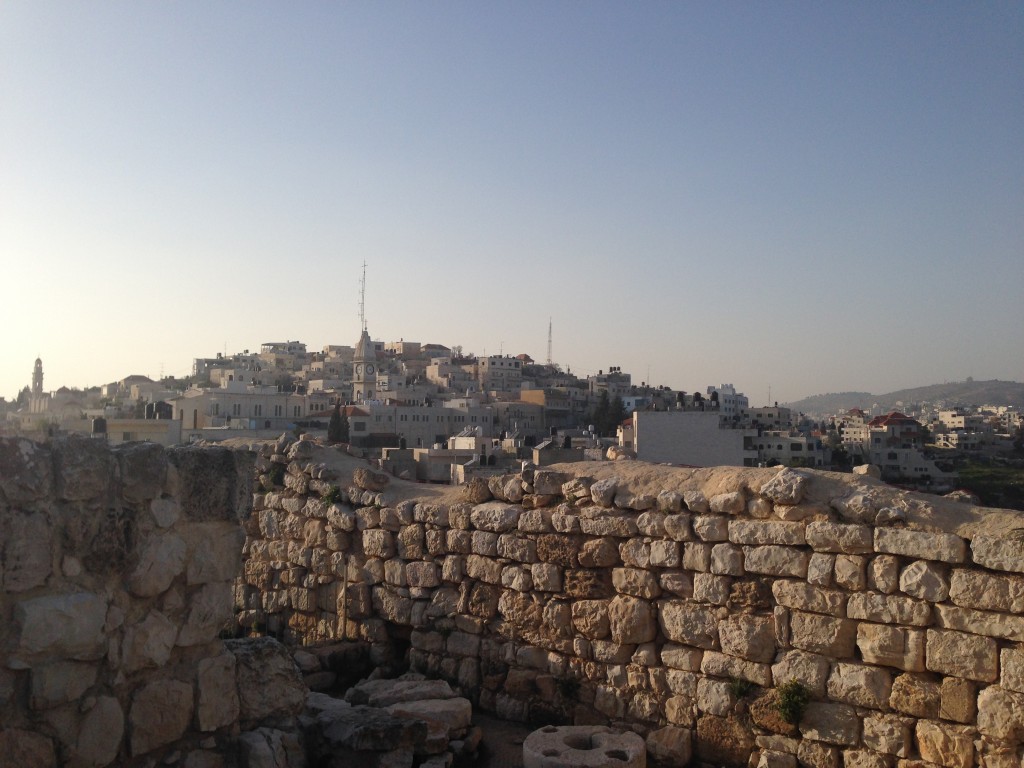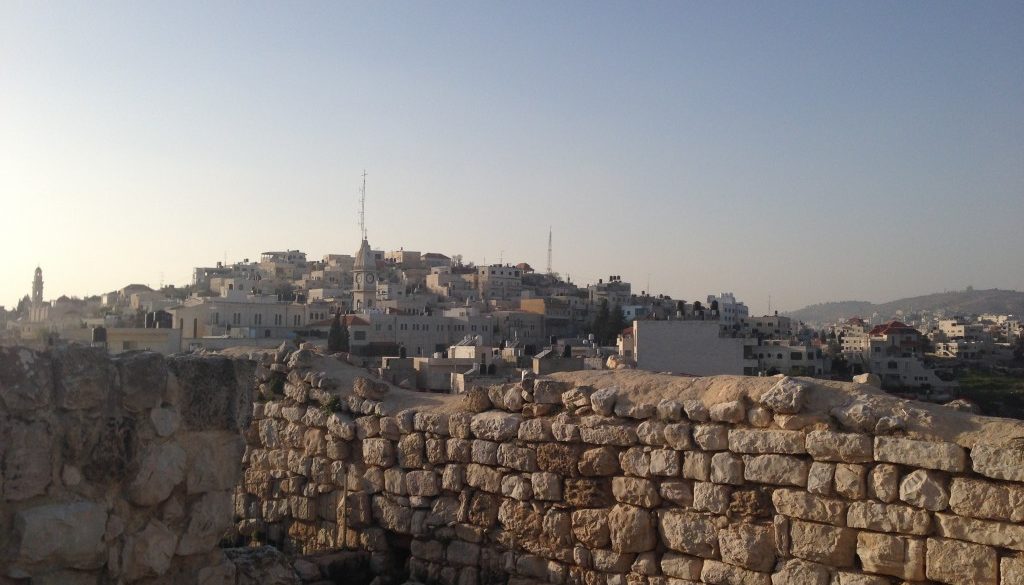Taybeh
On Sunday, we talked about Jesus raising Lazarus from the dead. The timing of the story unearths some of our deep tension between the goodness of God and the reality of suffering. What do we do when it seems like God is absent or not paying attention or not fixing what is broken? What do we do when evil goes unchecked as is demonstrated in the actions of ISIS? What do we do when our suffering makes us ask, where were you?
If you read the rest of John 11, you see that many of the people who see what happens to Lazarus choose to believe in Jesus. This wave of interest and allegiance causes the people in charge to re-assess ‘the problem of Jesus.’ They ask,
What are we to do? For this man performs many signs. If we let him go on like this, everyone will believe in him, and the Romans will come and take away both our place and our nation.
It is a significant existential and political crisis. They can’t let Jesus go on like this. So they settle among themselves that they will kill him. Caiaphas, the high priest argues, ‘it is better for you that one man should die for the people, not that the whole nation should perish.’ And they agree. Yes. Jesus dying makes life better for everyone.
Jesus is now in the liminal space that is created by his life being in danger, but it’s not quite time for him to be killed.
He therefore no longer walked openly among the Jews, but went from there to the region near the wilderness, to a town called Ephraim, and there he stayed with the disciples.
As he did SO MANY times, Jesus withdrew to rest, to pray, to be renewed with his friends. Today, the town of Ephraim goes by the name of Taybeh.

I was in this town just a few days ago. It is located in the West Bank and is populated almost entirely by Palestinian Christians. It is quiet, beautiful, and just on the edge of the desert. The hills offer spectacular views and the landscape is restorative. I spend a few hours with some Palestinian entrepreneurs who have created a micro-brewery, winery, and hotel. Each of the enterprises are boutiques that reveal the artisan craft and creativity of the town. Their goal is to show the world the beauty that exists in Palestine, to export a cultural narrative that is different from the way the region is often portrayed. Those precious hours were some of my favorite. The business owners are taking a tremendous risk– in faith hoping that a Palestinian state will exist into the future and that they can promote it’s nascent economy. I loved hearing about their dream and their love for this land.
Taybeh is a place of rest and dreams. When Jesus finished his most profound miracle short of his own resurrection, he went to Taybeh to be restored. Today, as we pray for this land and the peace and security that is so elusive, we cry out for Jesus to again to a significant miracle and to bring wholeness and shalom again.
-David
PS. You can’t get Taybeh beer in the US, yet. But it’s worth a flight…


February 18, 2015 @ 9:34 am
i need a “like” button. Thanks for posting this and taking me back to the ME. With all we see in the world today, it sure makes me yearn for the restoration of all things. Prayers for the peace of Jerusalem and the world at large.
February 18, 2015 @ 8:37 pm
I was struck as I read this by the priests’ and Pharisees’ reaction – they have found a man who raises the dead (they never seem to dispute this), yet they fear what the Romans might do to them. It seems so backwards. But I guess it’s not so far from where we are when we acknowledge the work Jesus has done in our lives but look elsewhere for security.
February 18, 2015 @ 8:58 pm
Douglas, GREAT INSIGHT. I feel convicted by the way I acknowledge God’s work but look elsewhere for security. Really well said.
February 21, 2015 @ 3:01 pm
David, in a way, this story reminds me of the time in the fall of 2000, when I sat under the dome of the Great Mosque of Saladin in Cairo, and our Coptic Christian guide there told us that Egypt is specifically mentioned in prophecy over 900 times in the Bible. There, in the middle of one of the greatest mosques in what is by far the largest Arabic-speaking city, one of the world’s most populous cities in the most populous and influential of the Arab nations, we were speaking freely amongst ourselves of the Word which promised redemption for all that part of our world, just as much as that message is for our part of it. I had no idea that Taybeh even existed before I read this post just now–even though I have been blessed with the opportunity to travel to the Holy Land twice in my life. But now that I have heard about it, Lord willing, I want to go now and see Taybeh for myself, if He sees fit to send me there. That’s my dream, anyway–thank you so much for sharing this story with us–I just shared your picture and your story with my housemate, Jack, too–he’s sitting right next to me in our kitchen right now, typing on his MacBook Pro on a snowy Saturday afternoon here in Northern Virginia, even as I’m typing this message into my device. My hope and prayer is that he and my other housemate Tom would come to know Jesus, just as Jesus makes it possible for us to share the Gospel of hope with our brothers and sisters in Palestine. Amen! — Weber